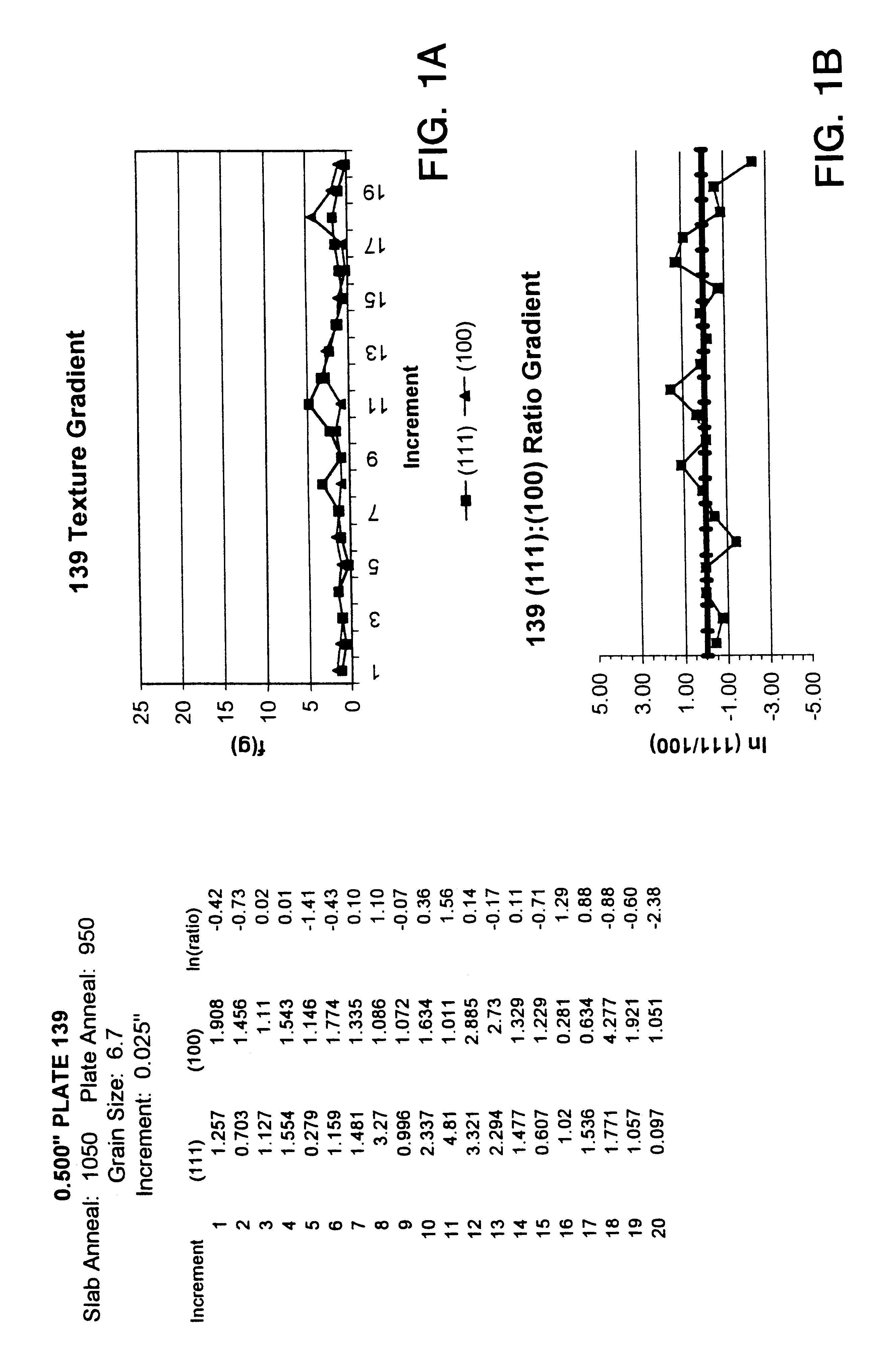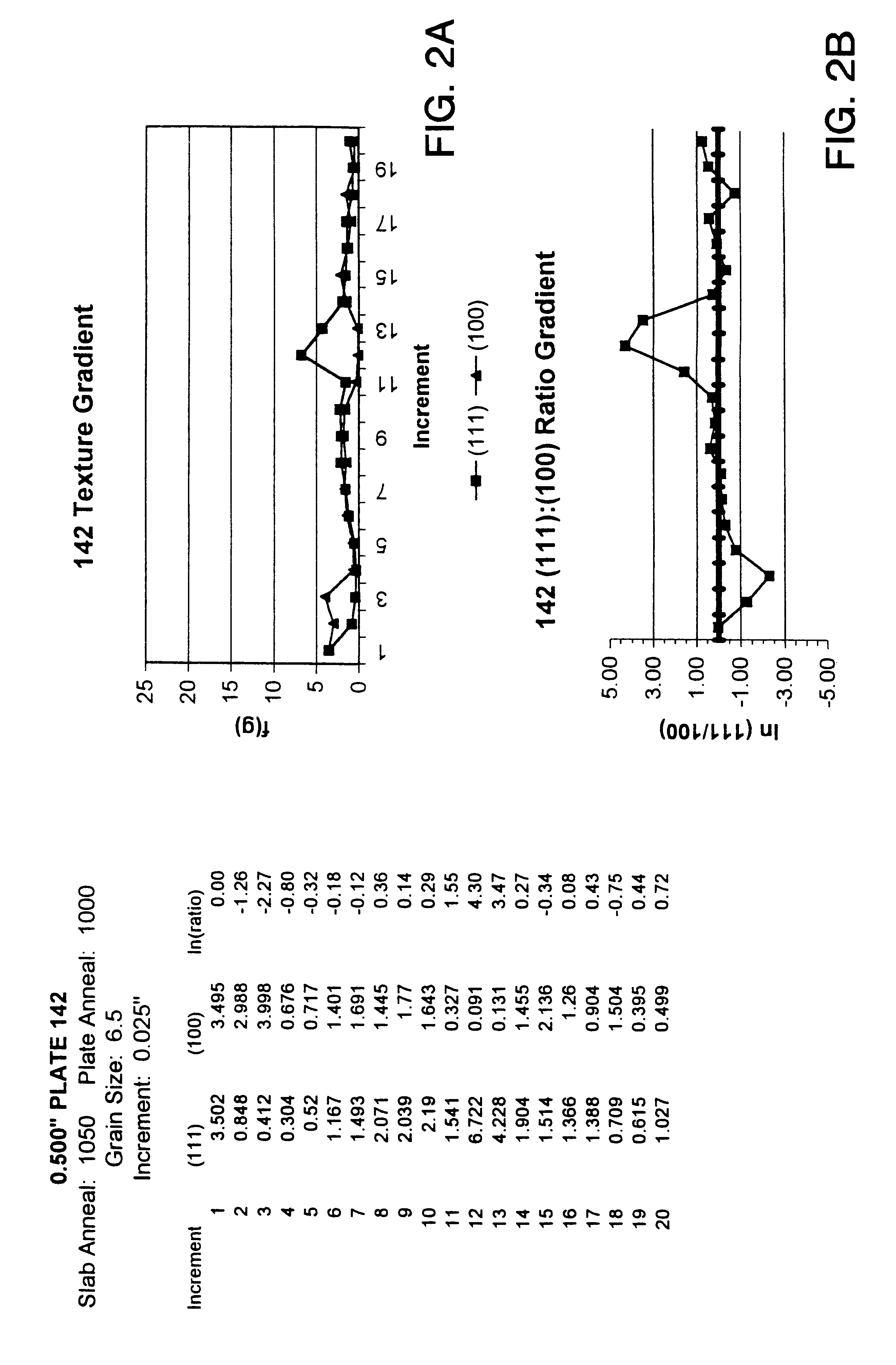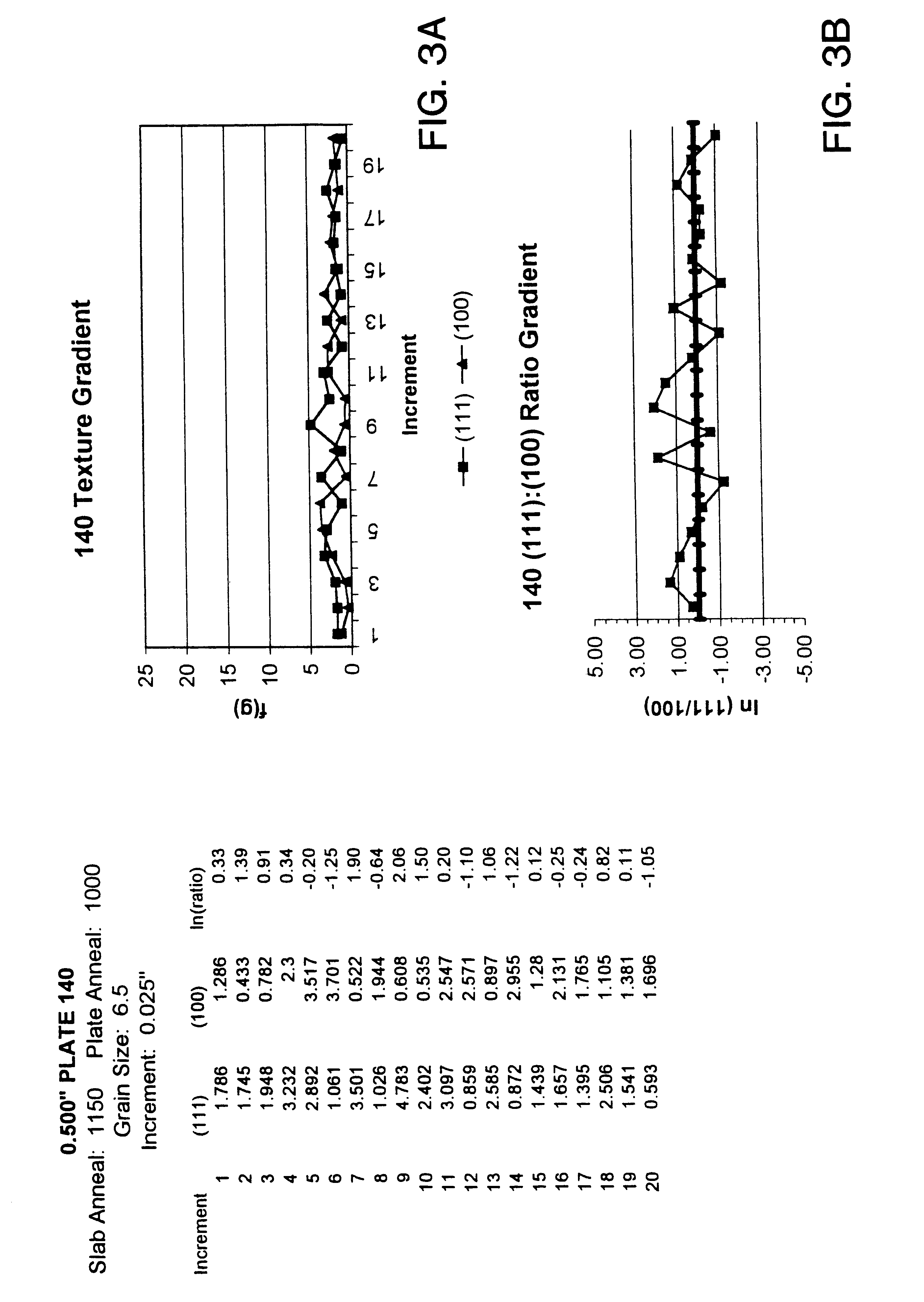High purity tantalum, products containing the same, and methods of making the same
a technology of high purity and tantalum, which is applied in the field of high purity tantalum, products containing the same, and methods of making the same, which can solve the problems of difficult or impossible removal of impurities, contaminated tantalum powder by various surfaces, and undesirable effects of metal impurities on the properties of articles, etc., to achieve uniform texture, high purity, and fine grain structure
- Summary
- Abstract
- Description
- Claims
- Application Information
AI Technical Summary
Benefits of technology
Problems solved by technology
Method used
Image
Examples
example 1
Numerous sublots of sodium-reduced commercial-grade tantalum powder, each weighing about 200-800 lbs., were chemically analyzed for suitability as 99.999% Ta feedstock for electron beam melting. Representative samples from each powder lot were analyzed by Glow Discharge Mass Spectrometry (GDMS): powder sublots having combined niobium (Nb), molybdenum (Mo), and tungsten (W) impurity content less than 8 ppm were selected for melting.
The selected Ta powder sublots were then blended in a V-cone blender to produce a homogeneous 4000 pound powder master lot, which was again analyzed by GDMS to confirm purity. Next, the powder was cold isostatically pressed (CIP'ed) into green logs approximately 5.5"-6.5" in diameter, each weighing nominally 300 pounds. The pressed logs were then degassed by heating at 1450.degree. C. for 2 hours at a vacuum level of about 10.sup.-3 -10.sup.-5 torr. For this operation, the logs were covered with tantalum sheets to prevent contamination from the furnace ele...
example 2
A potassium fluotantalate (K.sub.2 TaF.sub.7) was obtained and upon spark source mass spec analysis, the K.sub.2 TaF.sub.7 exhibited 5 ppm or less niobium. Levels of Mo and W were also analyzed by spectrographic detection and levels were below 5 ppm for Mo and below 100 ppm for W. In particular, the K.sub.2 TaF.sub.7 had levels of Nb of 2 ppm or less, of Mo of less than 1 ppm and of W of less than or equal to 2 ppm. In each sample, the total recorded amount of Nb, Mo, and W was below 5 ppm. Four lots of 2,200 lbs. each were analyzed.
One of the lots was transferred to KDEL reactor which used a pure nickel vessel and a Hastelloy X agitator. The Hastelloy X agitator contained 9% Mo and 0.6% W. The shaft and paddles of the agitator were then shielded with 1 / 16" nickel sheet using welding to clad all surfaces exposed to the reaction.
A standard sodium reduction process was used except as noted below. The lot was subjected to the agitator in the presence of pure sodium to form tantalum pow...
example 3
Two distinct process methodologies were used. First, a 99.998% pure tantalum ingot was used which was subjected to three electron beams melts to produce a 12 inch nominal diameter ingot. The ingot was machined clean to about 111 / 2 inch diameter and then heated in air to about 260.degree. C. for 4-8 hours. The ingot was then flat forged, cut, and machined into slabs (approximately 4 inch by 10 inch with a length of approximately 28 inch to 32 inch) and then acid cleaned with HF / HNO.sub.3 / water solution. The slabs were annealed at 1050, 1150, and 1300.degree. C. under vacuum of 5.times.10.sup.-4 Torr for 2 hours, then cold rolled into plate stock of 0.500 and 0.250" gauge. This cold rolling was accomplished by taking a 4 inch thick by 10 inch wide by 30 inch long slab and rolling it perpendicular to the ingot axis at 0.200 inch per pass to 31 inches wide. The plate was then rolled parallel to the ingot axis at 0.100 inch per pass to 0.650 inch thick or 0.500 inch thick. Both rollings...
PUM
| Property | Measurement | Unit |
|---|---|---|
| average grain size | aaaaa | aaaaa |
| temperatures | aaaaa | aaaaa |
| temperatures | aaaaa | aaaaa |
Abstract
Description
Claims
Application Information
 Login to View More
Login to View More - R&D
- Intellectual Property
- Life Sciences
- Materials
- Tech Scout
- Unparalleled Data Quality
- Higher Quality Content
- 60% Fewer Hallucinations
Browse by: Latest US Patents, China's latest patents, Technical Efficacy Thesaurus, Application Domain, Technology Topic, Popular Technical Reports.
© 2025 PatSnap. All rights reserved.Legal|Privacy policy|Modern Slavery Act Transparency Statement|Sitemap|About US| Contact US: help@patsnap.com



